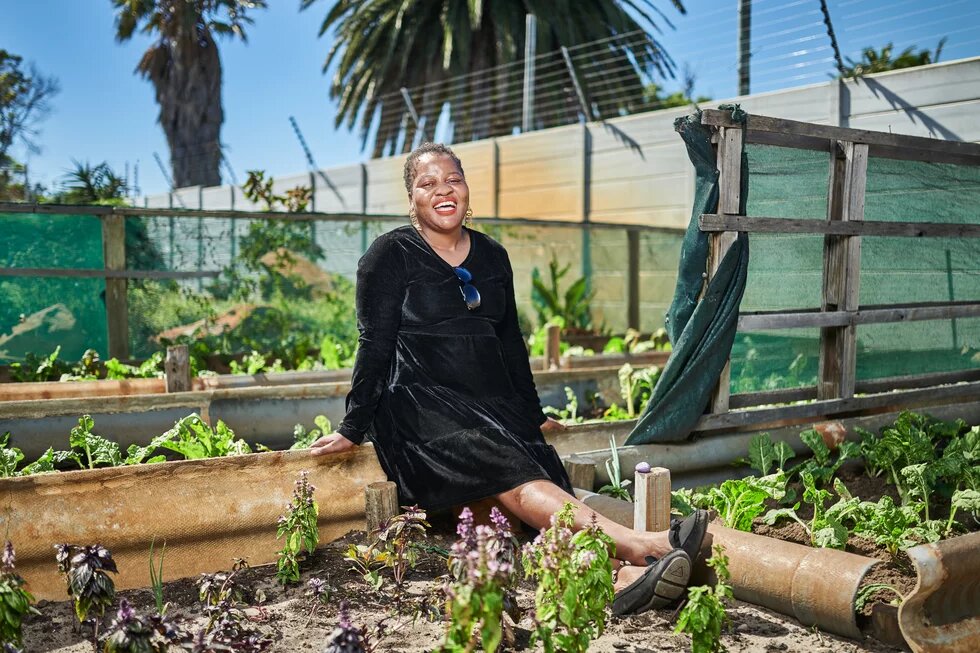Like so many other Actionists, Matilda found her calling through traumatic events in her past. Her values were developed and cemented through her own experiences, together with the motivation and determination that she needed to create lasting change.

Matilda was a teacher in Zimbabwe. Passionate about education and children, she worked her way up to the position of deputy head of school. Through the politically turbulent years, she persevered whilst, at the same time, living with an abusive and violent husband who wanted children and would punish her for not falling pregnant.
Her parents did not want her to divorce him and, even after waking up in the hospital after being beaten unconscious by the man who claimed to love her, they ordered her to return. But one day her husband announced that he was leaving her for a new woman who was pregnant by him, he offered Matilda the chance to stay on as their maid but when she refused, he dropped her at her parent's house and announced that they had separated.
Matilda was left with nothing and, because the teacher's salary was so little, she left her beloved profession. It was only through the kindness of a friend, Linda, that she was saved from the deep depression that she had fallen into. Linda cleaned her house, washed her clothes and gave her $500 to help get back on her feet.
15 years later Matilda’s life is very different. She now lives in the small township of Masiphumelele outside Kommetjie in the Western Cape. She is remarried and runs an early childhood development centre and an NPO called InterVisionary.
InterVisionary is all about empowering women, offering a safe space for GBV survivors to get counselling and support, and teaching them about self-sustaining farming practices.
“A woman who is not financially independent cannot raise her voice against violence. In many cases, they stay because they depend on them.”
Once the 2020 lockdown took place, the focus shifted to the immediate help that was needed at the time. Matilda quickly noticed that with so many people locked in their homes, unable to make money and unable to put food on the table, stress and anxiety were rising, along with incidents of GBV.
So, from her home, and with the loving support of her husband, Matilda started a feeding scheme. On the first day, 40 people turned up and within a week they were feeding 400 people a day.
Once lockdown was over, they called the community in for a dialogue, to see what was needed and where they could provide a valuable service. The main issue that arose was that of affordable childcare so that parents could get back to work. Before they knew it they were running an ECD centre with 33 children.
The GBV program resumed and now includes a healing program, a GBV ambassadors training program and public awareness campaigns. Their focus is still on empowerment, monitoring and supporting a group of 103 women who are survivors of GBV. They aim to help them with seed funding and mentoring to start small sustainable businesses whilst also providing them with the counselling that they need on an ongoing basis.
Matilda also runs a small farm just outside Masiphumelele where she grows vegetables to provide the children with a healthy meal and teaches survivors self-sustaining farming practices to implement at home.
“Before I die I want to create a big community centre where women and children are safe, with a garden and crops here in Masiphumelele. I see the different parts of the GBV program; counselling rooms, empowerment activity rooms, a pre-school for the children of survivors, and a big hall for our workshops. I see, on the walls, the pictures and stories of the heroes that have played a part in the birth of this organisation.”
All of this is achieved through the grit and determination of a woman motivated by the need to help others going through a situation that she knows all too well. As is often the case, funding is sparse and to keep the projects going Matilda is now looking for financial and logistical support.
InterVisionary can be contacted at +27 (0) 61 287 0973.
This story is one of a series of articles produced by The Actionists in collaboration with the Heinrich Boell Foundation's Cape Town office to highlight the incredible work of organisations and activists across South Africa in their pursuit of justice and equal rights for all.